Discover some of our projects
In this section we present some of our most outstanding projects.
At B.Link we understand that every project is unique. That is why we offer personalised attention to meet all the needs of each project and ensure its success. But our experience is not limited only to external consultancy in European projects. In certain strategic areas and fields for the company, where our team can provide added value beyond the knowledge in project management, B.Link participates directly as a beneficiary partner. This is the case of the projects Life REVERTER, TOURBAN, BeFuture, LookUp and SKATEBOARDING BEYOND.
TOURBIT
Sustainable tourism

Digitalisation can drive innovation, generate economic benefits and environmental improvements, and increase productivity. But it also poses many challenges for small businesses. TOURBIT aims to foster the competences and capabilities of tourism SMEs by promoting the resilience, competitiveness, and transformation of the European tourism sector.
But it also poses many challenges for small businesses. TOURBIT aims to foster the competences and capabilities of tourism SMEs by promoting the resilience, competitiveness, and transformation of the European tourism sector.
| Sector | Sustainable tourism |
| Program | COSME- program for small and medium-sized enterprises (SME) |
| Years of implementation | 2022 – 2024 |
| Total budget | 1,331,570€ |
| Link | https://tourbit.eu/ |
| Support provided by B.Link | Formulation, Project Management |
Fostering digitalisation of European tourism SMEs
Financed by COSME- program for small and medium-sized enterprises (SME)
| Years of implementation | 2022 – 2024 |
| Total budget | 1,331,570€ |
| Website | https://tourbit.eu/ |
| Support provided by B.Link | Formulation, Project Management |
MEDPEARLS
Sustainable tourism
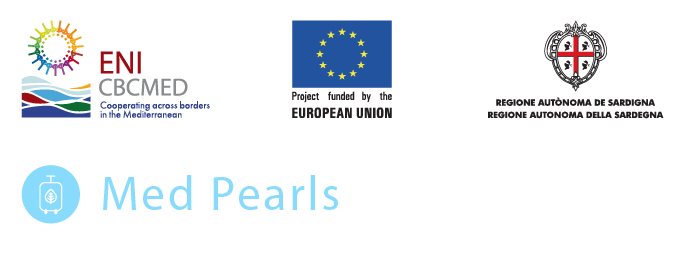
Most tourism models in the Mediterranean area are based on mass tourism and follow a fragmented vision of the region as a sum of different markets. MEDPEARLS aims to promote the Mediterranean as a holistic destination by creating 26 local “slow tourism” products, similar tourism experiences of the same quality in 13 regions and inviting travellers to discover them in a sustainable and responsible way, in direct contact with local communities.
| Sector | Sustainable tourism |
| Program | ENI CBC MED – Mediterranean territorial cooperation program |
| Years of implementation | 2022 – 2024 |
| Total budget | 1,331,570€ |
| Link | http://www.accio.gencat.cat/en/serveis/innovacio/innovacio-empresarial/tecniospring-plus/ |
| Support provided by B.Link | Formulation, Project Management |
The Mediterranean as an innovative, integral and unique destination for Slow Tourism initiatives
Financed by ENI CBC MED – Mediterranean territorial cooperation program
| Years of implementation | 2019 – 2023 |
| Total budget | 3,000,000€ |
| Website | http://www.accio.gencat.cat/en/serveis/innovacio/innovacio-empresarial/tecniospring-plus/ |
| Support provided by B.Link | Formulation, Project Management |
Tecniospring INDUSTRY
Business competitiveness

Tecniospring INDUSTRY is a fellowship program aimed at experienced researchers, offering them high quality professional opportunities in Catalonia thanks to two mobility schemes (entry/exit and return), both of 2 years, to develop applied research projects focused on technology transfer in various fields (health, industrial systems, energy, agri-food, mobility, etc.).
| Sector | Business competitiveness |
| Program | Marie Skłodowska-Curie Actions (Horizon 2020) – program for postdoctoral education and training |
| Years of implementation | 2019 – 2024 |
| Total budget | 10.195.200 € |
| Link | https://www.accio.gencat.cat/en/accio/agencia/projectes-europeus-aliances-i-feder/tecniospring-plus/?utm_source=shorturl&utm_medium=referral&utm_campaign=shorturl |
| Support provided by B.Link | Consultancy |
ACCIÓ programme to foster mobility of researchers with a focus in applied research and technology transfer
Financed by Marie Skłodowska-Curie Actions (Horizon 2020) – program for postdoctoral education and training
| Years of implementation | 2019 – 2024 |
| Total budget | 10.195.200 € |
| Website | https://www.accio.gencat.cat/en/accio/agencia/projectes-europeus-aliances-i-feder/tecniospring-plus/?utm_source=shorturl&utm_medium=referral&utm_campaign=shorturl |
| Support provided by B.Link | Consultancy |
KIDS
Business competitiveness
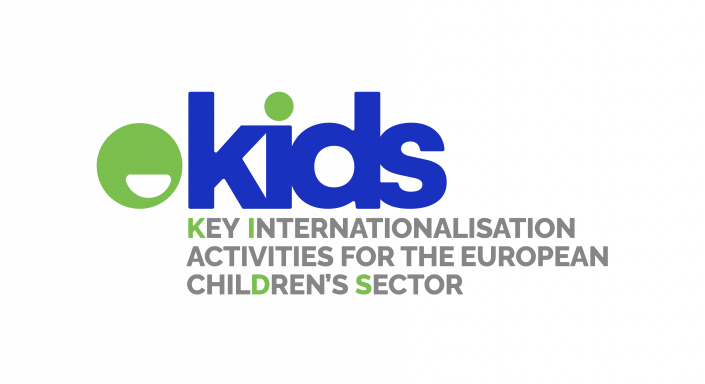
KIDS aims to foster the internationalisation of the EU children’s industry through the creation of a European cluster to discover and exploit the most promising international business opportunities for the children’s and family markets.
| Sector | Business competitiveness |
| Program | COSME(Cluster Go International) – European programme for SME internationalisation |
| Years of implementation | 2021-2024 |
| Total budget | 610.064 € |
| Link | https://www.kids-cluster.com/kids-european-project-consortium-and-21-companies-from-spain-denmark-and-france-travelled-to-paris-to-explore-and-expand-their-knowledge-retail-internationalization-sustainability-digitalizatio/ |
| Support provided by B.Link | Formulation, Project Management |
Key Internationalisation activities for the European chilDren’s Sector
Financed by COSME (Cluster Go International) – European programme for SME internationalisation
| Years of implementation | 2021 – 2024 |
| Total budget | 610,064€ |
| Website | https://www.kids-cluster.com/kids-european-project-consortium-and-21-companies-from-spain-denmark-and-france-travelled-to-paris-to-explore-and-expand-their-knowledge-retail-internationalization-sustainability-digitalizatio/ |
| Support provided by B.Link | Formulation, Project Management |
MPA-ENGAGE
Biodiversity, environment and climate change
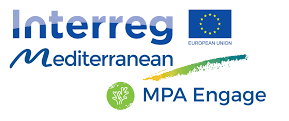
Climate change is drastically affecting the Mediterranean Sea. Marine Protected Areas (MPAs), despite being a nature-based solution for climate change mitigation and adaptation, are the first to suffer the effects. Through a participatory approach, MPA-ENGAGE aims to help MPAs equip themselves with tools and methodologies to monitor the effects of climate change and adopt adaptation plans.
| Sector | Biodiversity, environment and climate change |
| Program | Interreg MED – territorial co-operation program in the European Mediterranean |
| Years of implementation | 2019-2022 |
| Total budget | 3.049.783 € |
| Link | https://mpa-engage.interreg-med.eu/ |
| Support provided by B.Link | Formulation, Project Management |
MPA Engage: Engaging Mediterranean key actors in Ecosystem Approach to manage Marine Protected Areas to face Climate change
Financed by Interreg MED – territorial co-operation program in the European Mediterranean
| Years of implementation | 2019 – 2022 |
| Total budget | 3.049.783 € |
| Website | https://mpa-engage.interreg-med.eu/ |
| Support provided by B.Link | Formulation, Project Management |
MED4WASTE
Biodiversity, environment and climate change
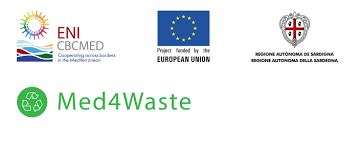
Current production and consumption patterns have a worrying impact on the Mediterranean. MED4WASTE aims to facilitate new governance models for an integrated and efficient municipal waste management policy through capacity building, planning and decision-making activities for public and private entities across the region.
| Sector | Biodiversity, environment and climate change |
| Program | ENI CBC MED – Mediterranean territorial cooperation program |
| Years of implementation | 2021-2023 |
| Total budget | 1.100.000 € |
| Link | https://www.enicbcmed.eu/projects/med4waste |
| Support provided by B.Link | Formulation |
Mediterranean Dialogue for Waste Management Governance
Financed by ENI CBC MED – Mediterranean territorial cooperation program
| Years of implementation | 2021 – 2023 |
| Total budget | 1.100.000 € |
| Website | https://www.enicbcmed.eu/projects/med4waste |
| Support provided by B.Link | Formulation |
CONNECT
Mobility and territorial cohesion
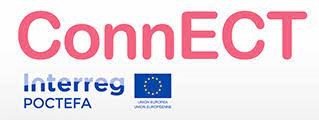
The Catalan Cross-Border Area suffers from a lack of cross-border public transport services. CONNECT aims to develop mobility in this area thanks to the creation of a harmonised network of bus lines, without service cuts or limitations due to the border and adapted to its users.
| Sector | Mobility and territorial cohesion |
| Program | Interreg POCTEFA – cross-border cooperation program Spain-France-Andorra |
| Years of implementation | 2018-2022 |
| Total budget | 1.693.106 € |
| Link | https://capitefa.poctefa.eu/detalle-de-proyecto/?IdProyecto=b20b725e-0487-4218-900c-cfaab3bc8550 |
| Support provided by B.Link | Formulation, Project Management |
Promoting the mobility of inhabitants of the Transfrontier Catalan Space
Financed by Interreg POCTEFA – cross-border cooperation program Spain-France-Andorra
| Years of implementation | 2018 – 2022 |
| Total budget | 1.693.106 € |
| Website | https://capitefa.poctefa.eu/detalle-de-proyecto/?IdProyecto=b20b725e-0487-4218-900c-cfaab3bc8550 |
| Support provided by B.Link | Formulation, Project Management |
PANORAMED
Mobility and territorial cohesion
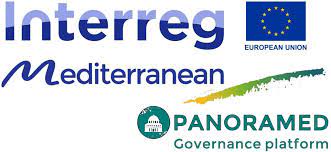
Innovation, energy, and environmental challenges in the Mediterranean require transnational governance. PANORAMED offers a platform for national and regional public authorities to establish a permanent dialogue between them and stakeholders on the ground for policy development, harmonised decision-making, and a shared strategy at Mediterranean level.
| Sector | Mobility and territorial cohesion |
| Program | Interreg MED – territorial co-operation program in the European Mediterranean |
| Years of implementation | 2017-2022 |
| Total budget | 9.000.000 € |
| Link | https://governance.interreg-med.eu/ |
| Support provided by B.Link | Project Management |
MED Governance Platform
Financed by Interreg MED – territorial co-operation program in the European Mediterranean
| Years of implementation | 2017 – 2022 |
| Total budget | 9.000.000 € |
| Website | https://governance.interreg-med.eu/ |
| Support provided by B.Link | Project Management |
SIRCLES
Social sector
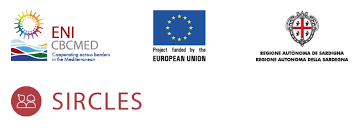
The Mediterranean has a high proportion of youth unemployment, particularly among women and the so-called ‘NEETs’ (not in education or employment). SIRCLES seeks to create new opportunities for these vulnerable groups through the incorporation of the circular economy model in the bio-waste sector. It will focus mainly on capacity building for entrepreneurship and waste separation, collection, and composting processes.
| Sector | Social sector |
| Program | ENI CBC MED – Mediterranean territorial cooperation program |
| Years of implementation | 2021-2023 |
| Total budget | 3.800.000 € |
| Link | https://www.enicbcmed.eu/projects/sircles |
| Support provided by B.Link | Formulation, Project Management |
Supporting Circular Economy Opportunities for Employment and Social Inclusion
Financed by ENI CBC MED – Mediterranean territorial cooperation program
| Years of implementation | 2021 – 2023 |
| Total budget | 3.800.000 € |
| Website | https://www.enicbcmed.eu/projects/sircles |
| Support provided by B.Link | Formulation, Project Management |
WeSTEMEU
Social Sector

In Europe, the number of women is disproportionately lower than men in the STEM (science, technology, engineering, mathematics) sector. WeSTEMEU addresses this issue and works at cross-regional level to improve policy instruments that promote and facilitate women’s employment in STEM for a more efficient and inclusive labour market.
| Sector | Social sector |
| Program | Interreg Europe – interregional cooperation program in Europe |
| Years of implementation | 2023-2027 |
| Total budget | 1,649,692 € |
| Link | https://www.interregeurope.eu/westemeu |
| Support provided by B.Link | Formulation, Project Management |
Women for Science, Technology, Engineering, and Mathematics in Europe
Financed by Interreg Europe – interregional cooperation program in Europe
| Years of implementation | 2023 – 2027 |
| Total budget | 1,649,692 € |
| Website | https://www.interregeurope.eu/westemeu |
| Support provided by B.Link | Formulation, Project Management |
ALL-IN&WIN
Sport and culture

Everyone has the right to enjoy sport without negative prejudice, discrimination, or exclusion on the basis of gender or sexual orientation. ALL-IN&WIN seeks better acceptance of LGBTQIA+ people in both elite and grassroots sport and to create a safe and inclusive climate with an emphasis on the well-being of athletes.
| Sector | Sport and culture |
| Program | Eramus + – programme for education, training, youth and sport |
| Years of implementation | 2022-2024 |
| Total budget | 400.000 € |
| Link | |
| Support provided by B.Link | Formulation, Project Management |
ALLiance for improving LGBT+ INclusion in sports to WIN togetheR
Financed by Eramus + – programme for education, training, youth and sport
| Years of implementation | 2022 – 2024 |
| Total budget | 400.000 € |
| Website | |
| Support provided by B.Link | Formulation, Project Management |
OPPORTUNITY
Sport and culture

OPPORTUNITY aims to promote the social inclusion of people with intellectual disabilities and equal opportunities from a gender perspective through traditional sports games.
| Sector | Sport and culture |
| Program | Eramus + – programme for education, training, youth and sport |
| Years of implementation | 2021-2023 |
| Total budget | 382.536 € |
| Link | https://erasmus-plus.ec.europa.eu/projects/search/details/622100-EPP-1-2020-1-ES-SPO-SCP |
| Support provided by B.Link | Formulation, Project Management |
Fostering social inclusion and gender equality in formal and nonformal educational contexts through applying traditional sports and games
Financed by Eramus + – programme for education, training, youth and sport
| Years of implementation | 2021-2023 |
| Total budget | 382.536 € |
| Website | https://erasmus-plus.ec.europa.eu/projects/search/details/622100-EPP-1-2020-1-ES-SPO-SCP |
| Support provided by B.Link | Formulation, Project Management |
